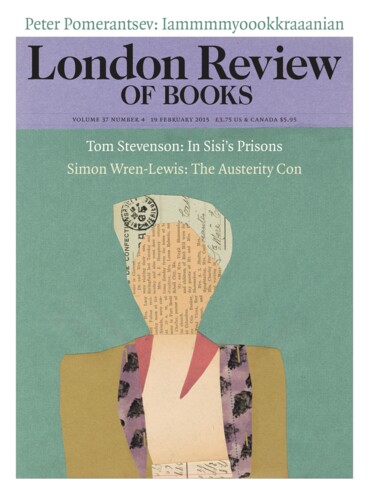On 8 December 2005, after a four-day case involving 19 barristers, the Appellate Committee of the House of Lords (as the forerunner to the Supreme Court was unglamorously known) gave judgment in A and Others v Secretary of State for the Home Department (No 2). The seven law lords laid down a rule of seemingly great importance: that evidence which was – or was likely to have been – obtained by torture was never to be admissible in legal proceedings. The secretary of state had argued strongly that such evidence should be allowed to be used, but he was soundly defeated. ‘From its very earliest days the common law of England set its face firmly against the use of torture,’ the senior law lord, Lord Bingham, declared; as a 19th-century jurist had put it, the practice is ‘totally repugnant to the fundamental principles of English law’ and ‘repugnant to reason, justice and humanity’.
Conor Gearty
Conor Gearty was a founder member of Matrix chambers and a professor of human rights law at LSE. His books include On Fantasy Island: Britain, Europe and Human Rights and Homeland Insecurity: The Rise and Rise of Global Anti-Terrorism Law. His first piece for the LRB, in 1994, was on political sleaze. He also wrote on the SAS killing of three IRA members in Gibraltar, the Scott Inquiry into the sale of British arms to Iraq, Michael Collins, the Hutton Inquiry into the death of David Kelly, human rights law and war crimes in Gaza. He died in September 2025 at the age of 67. A piece on the ways that the UK Supreme Court is ‘quietly editing the Human Rights Act out of existence’ will appear in a forthcoming issue of the paper.
In 2011, Theresa May told the Conservative Party Conference that the Human Rights Act needed to be restricted. One of the examples she gave of its alleged excesses was an ‘illegal immigrant who cannot be deported because – and I am not making this up – he had a pet cat’. Except she was making it up, or at least grossly exaggerating one small part of a case into its entire rationale. In March 2013, she created another stir by suggesting that the next Tory election manifesto should include a promise to dump the European Court of Human Rights. This forced old school Conservatives such as Kenneth Clarke to defend the Strasbourg body – which was just what she wanted, as it would make them more unpopular with Europhobic Tory voters, while boosting her own Eurosceptic credentials. May’s speech on Brexit earlier this week needed some xenophobic noise to camouflage her pro-EU stance in the referendum campaign; human rights were once again her target.
Beware the Extremists
Conor Gearty, 19 February 2015
In October 1988 the Conservative student association at Liverpool University invited a diplomat from the South African embassy to speak at one of its events. In those Cold War days Nelson Mandela was still a terrorist and defenders of apartheid were heroes to some on the hard right. But protests seemed likely and the university authorities felt compelled to withdraw permission for the...
Equal treatment under the law only really works when not everybody counts as human. The classical Athenians enjoyed their freedom behind a franchise firewall that kept most people out; the parliamentarians of John Locke’s time accorded each other equal respect but contrived to notice no one else. The truths held to be self-evident by the founding ‘fathers’ of the United States a couple of generations later only applied to rich white men. During the 19th century, British labour activists and Irish nationalists found the law to be good at protecting the Salvation Army and anti-nationalist rabbles, but not so good (entirely absent actually) where their own activities were concerned. In 1925, the home secretary, William Joynson-Hicks, defended an egregious prosecution of Communists by explaining that they had not been engaged in the ‘right kind of freedom of speech’. Fascists could march but protests by unemployed workers were brutally broken up.
Short Cuts: Counterterrorism
Conor Gearty, 8 September 2011
The third instalment of the UK’s counterterrorism strategy, Contest (HMSO, £28.50), draws on earlier Labour initiatives – part pseudo-analysis of al-Qaida’s current capabilities, part salesmanship – but ‘reflects the changing terrorist threat’ and ‘incorporates new government policies’. Its appearance also reflects ‘the...
Pieces about Conor Gearty in the LRB
How the Judges Stood in the Way of Socialism
Bernard Porter, 1 June 2000
This book’s most startling revelation – if true – concerns the state of legal education in Britain today. We are told that from their ‘first days at law school’ our...
Read anywhere with the London Review of Books app, available now from the App Store for Apple devices, Google Play for Android devices and Amazon for your Kindle Fire.
Sign up to our newsletter
For highlights from the latest issue, our archive and the blog, as well as news, events and exclusive promotions.



